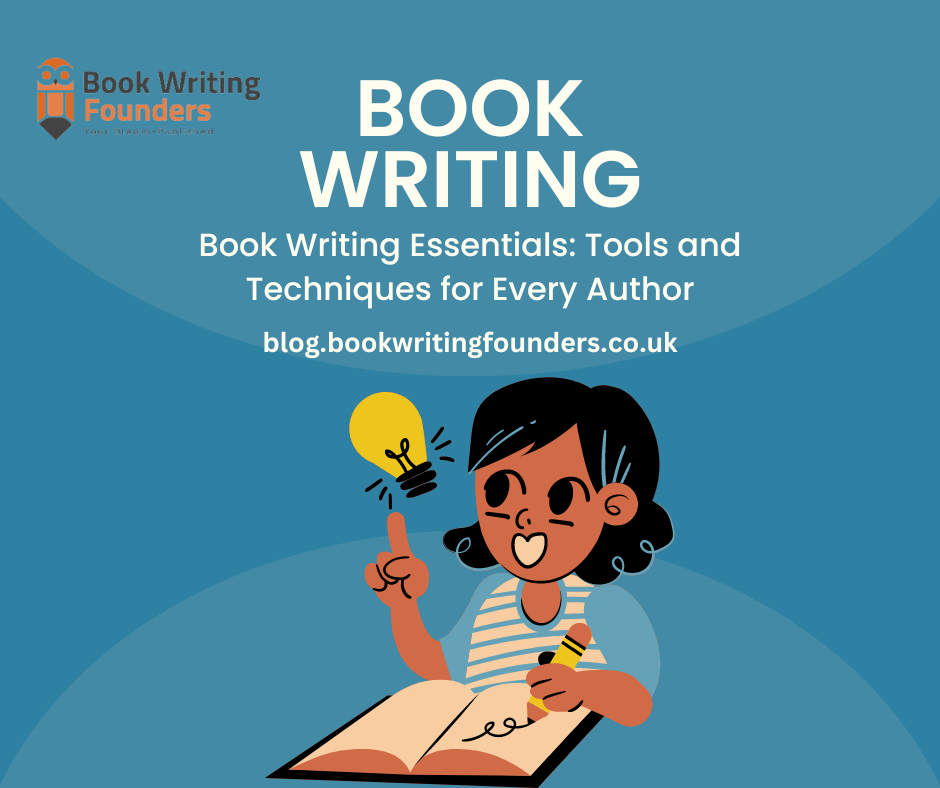
Author
Introduction
Many people who love to write want to become authors. Whether you want to write a best-selling novel, a self-help book, or an interesting memoir, the path to becoming an author takes hard work, persistence, and a plan. In this piece, we’ll talk about six important steps you need to take to become an author, as well as some helpful tips for success. How to Become a Ghostwriter can be a great starting point if you’re considering ghostwriting.
Step 1: Choosing Your Genre
The first step to Becoming an Author is figuring out what kind of writing you want to do. Think about what you like, what you’re passionate about, and what stories you want to tell. Choose a subject that speaks to you, whether fiction, nonfiction, romance, mystery, or fantasy. This will make the writing process more fun and real. If you’re curious about exploring different genres, you can check out our article on How to Write an Autobiography and Its Example for inspiration.
Step 2: Developing Your Writing Skills
You need to work on your writing skills to be a great author. Read a lot in the field you want to write in to get used to different writing styles and techniques. Also, write often to get better at it. Join writing workshops, take online courses, and ask other writers or mentors for comments to improve your writing skills even more. If you find it difficult to nurture writing skills, you can take help from ghostwriting.
Step 3: Creating a Writing Routine
Those wanting to become writers must set up a regular writing schedule. Set aside time every day or week to do nothing but write. Find a quiet and comfortable place where you can focus on your work without being interrupted. By sticking to a schedule, you develop focus and make it a habit to write every day, which helps you make steady progress toward your goal.
Step 4: Outlining and Drafting Your Work
Make a full outline of your book writing before you start writing it. Outline the main plot points, character arcs, and important events. This plan will be like a map for you as you write, giving you structure and direction. Once the plan is finished, you can start writing your book, chapter by chapter. At this point, don’t worry about getting everything right. Instead, focus on getting your thoughts on paper.
Step 5: Editing and Revising Your Manuscript
Once you’ve finished the first draft, it’s time to go back and make changes and edits. Start by looking at the organization and flow of your work. You can improve your writing by cutting out parts that aren’t important or repeated, making your sentences better, and making your story flow better. You could hire a professional editor or join a critique group to get helpful comments on your work.
Step 6: Publishing and Promoting Your Book
After you’ve fixed up your work, it’s time to think about how to get it published. You can look into traditional publishing houses like Book Writing Founders UK or self-publishing sites, depending on your goals and preferences. If you choose standard publishing, write a good query letter and send your manuscript to literary agents or publishers. Format your book, make a cover that stands out, and choose a reputable self-publishing site. Once your book is out, you should focus on selling and promoting it to reach the people you want to read it. Use social media, author websites, book events, and other ways to promote your work to get people talking about it.
Tips for Becoming an Author
Here are some tips for becoming an author:
- Read a wide range of types and styles to learn more about how stories are told and how to tell them yourself. Reading a lot will also show you how others write and help you develop your style.
- Practice is the best way to get better at writing. Set aside time to write every day or every week. Make it a habit and an important goal. If you write a lot, you’ll get better at it.
- Ask other writers, beta readers, or people in writing groups for constructive critiques. Be willing to hear criticism and use it to make your work better. Constructive feedback can help you learn new things and see where you can improve.
- Try different writing methods and find the best ones. Some writers like to make a detailed outline before they start, while others like to go with the flow. Find a way to work that fits your creative style and helps you stay on task.
- Polish your work by reviewing it carefully and making changes. Pay attention to grammar, sentence organization, clarity, and how the writing flows. Hire a skilled editor to get a fresh look at your work.
- Join classes, writing groups, or online communities to meet other writers. Getting to know other authors can give you important support, encouragement, and chances to work together.
- Writing can be hard, but the most important thing is to keep going. Don’t give up on your goals, even if you get turned down or have other problems. Keep getting better at your work, and have faith in your skills.
- Attend writing conferences, literary events, and book fairs to meet people in the business, agents, and publishers and build relationships. Networking can help you get published and help you make important links in the writing world.
- As an author, you must market and spread your work. Use social media, make an author website, talk to fans, and try different marketing techniques to get people interested in your books.
- Never stop learning because writing is a process of learning all the time. Find ways to improve as a writer by attending writing workshops and online courses, staying up-to-date on trends, and publishing chances in the field.
CHALLENGES TO BECOME AN AUTHOR
Becoming an author is a rewarding journey, but it also comes with its own set of challenges. Here are some common challenges that aspiring authors may face:
Finding time to write:
Balancing writing with other responsibilities can be challenging. Many aspiring authors have jobs, families, or other commitments that demand their time and attention. Carving out dedicated writing time and maintaining a consistent writing routine can be difficult but is crucial for progress.
Overcoming self-doubt:
Self-doubt is a common obstacle for writers. It’s natural to question your abilities and worry about how your work will be received. Overcoming self-doubt requires developing confidence in your writing skills and embracing the creative process despite uncertainties.
Maintaining motivation:
Writing a book is a long-term endeavor that requires sustained motivation. It’s easy to feel discouraged or overwhelmed along the way. Finding ways to stay motivated, such as setting achievable goals, seeking support from fellow writers, or reminding yourself of your passion for storytelling, is essential.
Dealing with rejection:
Rejection is an inevitable part of the writing journey. It can be disheartening whether it’s rejection from literary agents, publishers, or negative feedback from readers. Developing resilience and using rejection as an opportunity for growth and improvement is crucial.
Crafting a compelling story:
Writing a captivating and well-structured story is challenging. Authors must create engaging characters, develop a coherent plot, and maintain reader interest throughout the narrative. It requires honing storytelling skills, understanding narrative techniques, and constantly refining one’s craft.
Essential Steps and Detailed Insights
| Step | Description | Key Focus |
|---|---|---|
| Step 1: Choosing Your Genre | Determine what kind of writing you want to do. Choose a subject that speaks to you, like fiction, nonfiction, romance, mystery, or fantasy. | Genre Selection |
| Step 2: Developing Your Writing Skills | Work on your writing skills by reading a lot and writing often. Join workshops, take online courses, and seek feedback. | Skill Development |
| Step 3: Creating A Writing Routine | Set up a regular writing schedule. Find a quiet, comfortable place and write daily or weekly to make steady progress. | Routine Establishment |
| Step 4: Outlining And Drafting Your Work | Create a detailed outline of your book. Plan main plot points, character arcs, and important events. Then start drafting, focusing on getting ideas on paper. | Planning & Drafting |
| Step 5: Editing And Revising Your Manuscript | After the first draft, revise for organization, flow, and quality. Consider hiring an editor or joining a critique group for feedback. | Revision & Editing |
| Step 6: Publishing And Promoting Your Book | Explore publishing options like traditional publishing houses or self-publishing. Once published, focus on marketing and promotion through various channels. | Publishing & Marketing |
| Tips & Challenges | Read widely, practice regularly, seek feedback, explore writing methods, polish work, network, stay motivated, face challenges like time management, self-doubt, and rejection. | General Tips & Overcoming Challenges |
Conclusion
Becoming an author is an exhilarating journey that requires passion, dedication, and perseverance. By following these six steps and incorporating the tips provided, you can embark on your path to becoming a successful author. Remember that writing is a continuous learning process, so embrace every opportunity to grow and improve.





